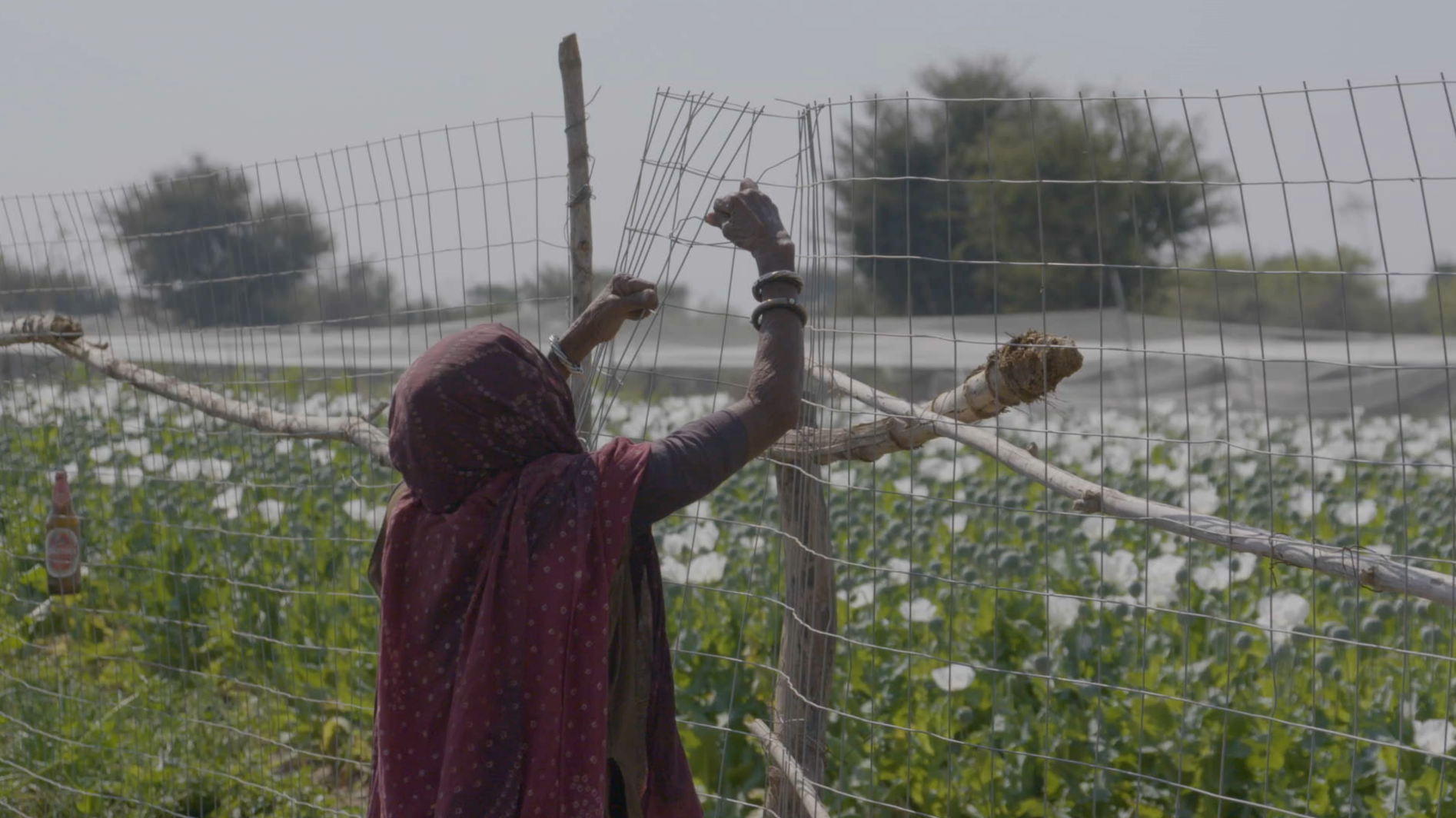Projects
I, Poppy
Vivek CHAUDHARY
- India
- 75min
- DCP
Social&Human Interest
Synopsis
Vardibai, a Dalit (low-caste) farmer, hails from a family of opium poppy farmers and has been legally farming opium all her life. The opium farming is controlled by a corrupt Narcotics Bureau. Over her lifetime, she has learned how to navigate the system. Farming opium gave her status and the financial means to educate her son, who became the first person in their entire family ever to get an education. But later, seeing the oppression of the Narcotics Bureau, he started to campaign against them, endangering their mother-son relationship. The son wants the officials to raise opium rates paid to farmers and not make them resort to the black-market to make ends meet. His mother meanwhile just wants him to stop his activism so that her family is not put under undue pressure by the Narcotics Bureau. Her opium farming license is under threat as the officials are making it difficult for her to renew her annual license. The film takes place over the course of a year and half that spans two opium seasons. We enter their story in the first opium season. We see the mother lovingly sow poppies that bloom into beautiful white flowers. The flowers fall away to form hard poppy pods that when punctured ooze out a dark red liquid, opium. Alongside, the mother-son conflict develops and is heightened as the son keeps stepping up his activism even as his mother opposes it. This leads to a major development – the mother loses her opium farming license that she has relied on to farm for over 50 years. How will they navigate this new reality? The conflict remains but it changes course. The mother has to deal with having no opium in her field, the very crop that gave her respect in society. And in her son’s words, “with nothing to lose” he is ramping up his activism. The mother and son meet each other for a few hours at a time, late in the night and early in the morning. Their conversations and silences, slowly piled one on top of the other, offer insight into their world. This mother-son story, in a microcosm, reflects the question that is faced by 56,000 opium farming families – should they reap the benefits of a broken system or try to mend it? And at what cost?
Review
My family belongs to a community of farmers who have lived in close harmony with opium poppies for over 400 years. Ever since I was a kid, I have seen my grandfather, uncles and other elders of the village sit together and drink this brown liquid, opium. At weddings, they would sing songs and serve this brown liquid to each other in their palms. It was and continues to be a sign of friendship and hospitality. But presently, the oppressive policies of the Narcotics Bureau exert pressure on farmers and forces them to the black market putting the entire community in danger. The farmers are paid far below the fair prices for their produce and are encouraged to resort to trafficking. This puts them under risk of being jailed for long sentences or much worse in the form of pressure by the traffickers. Consider that for an average opium crop season of six months, the Narcotics Bureau pays a farming family close to USD 200 for their produce, and these rates have not been significantly revised for 21 years. The idea of the film is to observationally bring out the culture of this rural community along with shining a light on the issues that are faced by the present generation of farmers. The real beneficiaries, in a corrupt system, have become regulators who intimidate and extort. I feel strongly about this issue and this film is my attempt to build a nuanced discussion around this subject. I think I am the right person for this is because I am closely embedded with the community and I have a unique perspective on the position that opium poppies have held and the changes that they have seen over the years. Also, being closely embedded in the community gives me access unavailable to outsiders given locals’ fears of the various forces that are at play.
Director
-

Vivek CHAUDHARY
Credit
- Producer비벡 차우다리 Vivek CHAUDHARY
